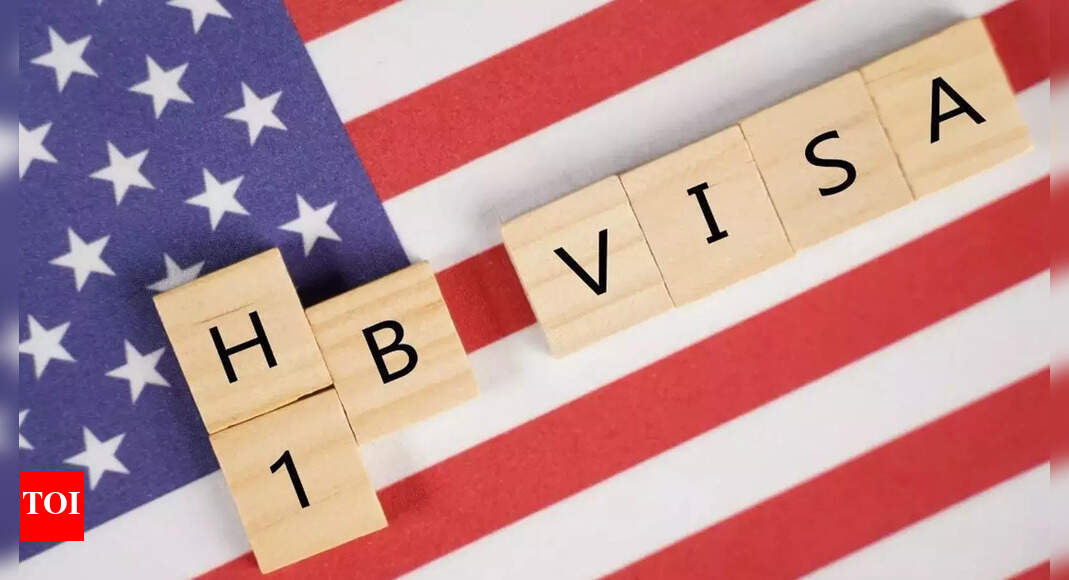
The growing hostility in the United States toward the H-1B visa program is no longer just a policy debate—it has evolved into a politically charged attack threatening the livelihoods of millions of skilled Indian professionals. For decades, Indians have been central to America’s technology and innovation sectors, powering everything from Silicon Valley startups to critical infrastructure projects. But recent political rhetoric suggests that their contributions are now under threat, creating an environment of uncertainty and urgency for Indian students and professionals aiming to build careers in the US.
Florida Governor’s H-1B remarks stoke anti-Indian sentiment
In late August 2025, Florida Governor Ron DeSantis labeled the H-1B visa program a “total scam” and a “cottage industry” benefiting Indian workers during an interview with Fox News. He alleged that companies exploit the program by replacing American employees with cheaper foreign labor, mostly from India. By framing foreign talent as a threat to domestic jobs, DeSantis overlooks the fact that Indian H-1B holders have been crucial to building and maintaining US technology and innovation.His statements are more than political theatre—they amplify anti-immigrant sentiment, which could translate into discriminatory workplace practices and restrictive policy decisions, directly affecting the careers and stability of thousands of professionals.
Widening political consensus on restricting Indian workers
Over the past few years, key figures in the Republican establishment—including Commerce Secretary Howard Lutnick and Vice President JD Vance—have voiced support for replacing the H-1B lottery system with a wage-based selection model. While framed as prioritizing American workers, these proposals could disproportionately affect Indian professionals and students, many of whom are early in their careers and earn lower salaries than senior US hires.These past and ongoing discussions have contributed to a growing political consensus that risks institutionalizing bias, potentially relegating Indian workers to second-class status and shrinking pathways to residency and citizenship. For families and students navigating the visa system, understanding these historical statements is critical to preparing for rapidly changing rules.
A growing anti-India and anti-immigrant narrative
While the US faces economic challenges, a political storm is brewing over immigration policy—especially affecting Indian students and professionals. High-profile figures like Steve Bannon have fueled an increasingly hostile narrative, with statements such as, “No foreign students should be in the country right now.” This rhetoric threatens foundational visa programs, including student enrollment, Optional Practical Training (OPT), and H-1B sponsorship, which together form the career lifeline for thousands of future Indian graduates.Even though these remarks have not directly resulted in legislation, they reflect a broader climate of anti-immigrant sentiment. Such narratives influence public opinion, shape media coverage, and can set the stage for stricter visa policies, creating uncertainty for Indian students and professionals seeking long-term opportunities in the US
Targeting Indian professionals amid trade tensions
Adding intensity to the debate, Congresswoman Marjorie Taylor Greene has called for ending Indian H-1B visas, portraying Indian workers as replacing American jobs. Combined with escalating US-India trade tensions, this narrative casts Indian professionals less as collaborators in innovation and more as economic competitors.The political framing has immediate implications: it fuels skepticism toward Indian talent, empowers protectionist measures, and threatens the stability of career pathways for students and early-career professionals. For many Indian families, this hostile environment is more than rhetoric—it is a looming reality that could reshape opportunities in America’s technology and innovation sectors.
Impact on Indian communities
Indians account for nearly 70% of all H-1B visa recipients, making them the most visible target of this rhetoric. The anti-H-1B wave extends beyond policy debates—it is creating a hostile environment in workplaces and communities. Professionals face heightened discrimination, job insecurity, and the constant threat of abrupt visa denial or deportation. Families who have invested heavily in education and relocation now confront a precarious future, while the disruption of this talent pipeline could also weaken America’s technology sector.
Rising urgency for Indian professionals
The political assault on the H-1B program, framed as protecting American workers, effectively singles out Indian immigrants who have already navigated decades of challenges to contribute to the US economy. Anti-H-1B rhetoric stokes nationalism at the expense of immigrant contributions, threatening the multicultural fabric of the American workforce.For Indian professionals and students, the situation is urgent. The landscape is shifting rapidly, and careers that were once considered secure are now vulnerable to political winds and policy changes. Awareness, preparation, and strategic planning are no longer optional—they are essential for maintaining a foothold in America’s competitive tech ecosystem.








